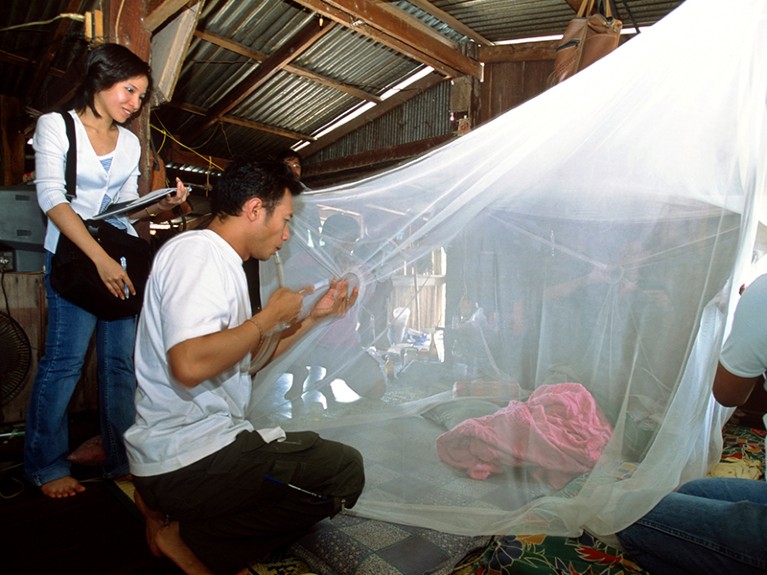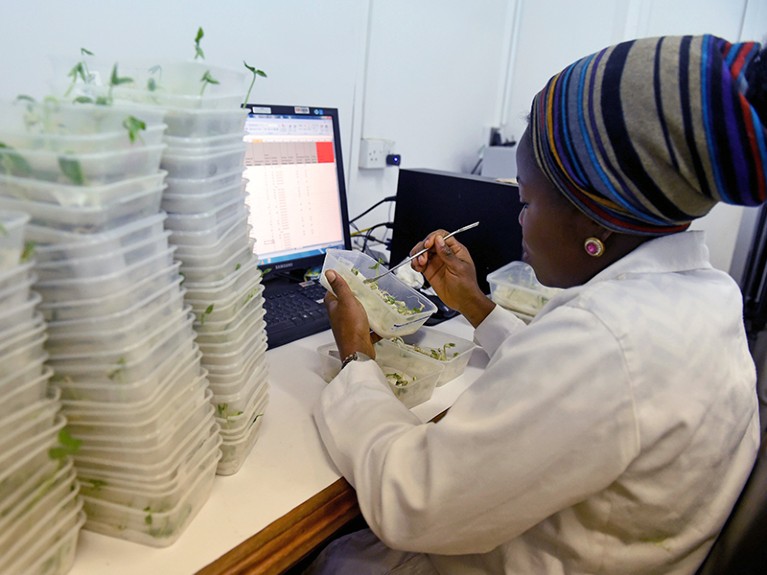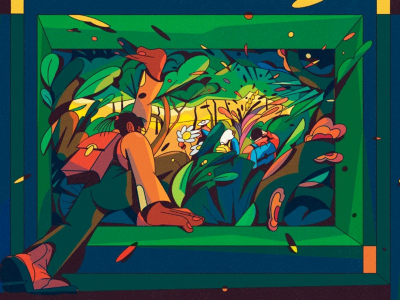Syahirah Abdul Rahman spent five years pursuing fundamental research for her business PhD. She published her work on Malaysia’s financial markets in a leading journal. But her discovery that “only six people read it” — according to the handful of citations her paper accrued — prompted a career change. She realized that she wanted her work to be more immediately practical, and now studies the factors that help research to have a social or economic impact, at Oxford Brookes Business School in Oxford, UK.
Many people want their work to make a positive difference — addressing health, poverty or environmental issues, say — and data suggest that younger generations are prioritizing such goals. A 2023 survey by the global consultancy firm Deloitte of more than 22,000 people — specifically Millennials (those born between the early 1980s and mid-1990s) and those in Generation Z (born mid-1990s to early 2010s) — found that more than one-third of respondents have rejected employers because they did not align with their values.

Help to shape policy with your science
The crises of the twenty-first century, such as the great recession, the COVID-19 pandemic and climate change, might be driving a shift among young people, says Christopher Wong Michaelson, a philosopher who studies what makes work worthwhile at the University of St. Thomas in Minneapolis, Minnesota. “We talk more openly about meaning and purpose at work today than in the past,” he says.
But what counts as meaningful work for researchers, and how can they direct their energies towards it before, during or after their PhDs? Eleven experts — including philosophers, labour economists, other social scientists and a Nobel prizewinner — shared their tips with Nature.
1. Make what you love benefit the world
Table of Contents
One conventional framework for thinking about meaningful work is to look for the intersection between what you are good at, what you love, what you can be paid for and what the world needs. Unfortunately, few careers land neatly in the middle of this Venn diagram, says Michaelson, with laboratory work probably falling into the category of worthwhile but underpaid.
Rather than wrestling with whether we should serve ourselves by doing what we love, or instead serve the needs of others, Michaelson says a pragmatic answer is to think about how to turn what you love into something that is beneficial to the world, or vice versa. For a researcher, this might involve directing a passion for artificial intelligence into regulation of the technology, or tilting research on car emissions towards work on low-emission cars. Or it might mean choosing work that is worthwhile — and becoming good enough at it that satisfaction will follow.
Michaelson, who worked in management consulting before entering academia, cautions that research careers can be slow-burning. “A lot of research will never see the light of day, it will fail or will remain obscure,” he says. By contrast, applying research by bringing an idea to market might have an immediate but more shallow impact, and “we need both”, he says.

Researchers test insecticide-laden mosquito nets in Thailand. Infectious-disease research can be rewarding, but slow to bear fruit.Credit: Thierry Falise/LightRocket/Getty
Those seeking a meaningful career should beware of companies that have rushed to articulate ‘purpose statements’ about making the world a better place. There is a risk that this amounts to ‘purpose-washing’, says Michaelson, in which firms flaunt do-good goals to boost shareholder value and attract value-driven young employees.
But there’s good news for researchers looking for purpose in their work: the philosophers interviewed for this article mostly viewed research itself as a meaningful career. “Expansion and production of knowledge tends to be of benefit to human beings,” says Michael Cholbi, a philosopher at the University of Edinburgh, UK, who teaches a course on the ethics of work. Academic researchers are often educators, too, he adds, and there is plenty of research evidence that education improves people’s lives1.
2. Choose a pressing problem
In 2011, University of Oxford philosophy students Will MacAskill and Ben Todd were trying to work out how to pursue worthwhile careers. They found that standard career advice fell short because it didn’t show which path might help the world most. That prompted them to start 80,000 Hours, a careers advisory organization in London, that aims to help students have the biggest positive impact with the 80,000 working hours in their lives (40 hours × 50 weeks × 40 years). It became a foundational group in the worldwide ‘effective altruism’ movement, which seeks the most impactful ways to help others.
80,000 Hours has compiled a list of the world’s most pressing problems — topped by risks from artificial intelligence, catastrophic pandemics and nuclear war. The group ranks problems as more pressing if they affect many people, if they are relatively neglected (so that one person tackling the issue might have a large impact) and if solutions might be found. Acknowledging that some people might disagree with the list, the group provides a way for someone to work out which problems matter most to them. 80,000 Hours also suggests that people examine areas in which they could best excel or ‘fit’, and experiment.

How to switch research fields successfully
What does all of this mean for someone pursuing a career in research? For students thinking about a PhD, it might be investigating academic disciplines that are relevant to their own list of pressing problems, Todd says, and trying jobs outside academia before taking the plunge into a PhD. Because people feel a lot of pressure about choosing the right career, Todd encourages them to think more of a “step-by-step process where you’re going do something for a few years and then re-evaluate”. 80,000 Hours provides detailed online career guidance and individual careers advice, based on experts’ views and academic research.
The group estimates that it has reached more than 400,000 people and that hundreds have changed their careers as a result. But it faced controversy last year because of its links to the former billionaire and convicted cryptocurrency fraudster Sam Bankman-Fried. MacAskill had encouraged Bankman-Fried to ‘earn to give’ — that is, to pursue a high-earning job and donate to good causes. And 80,000 Hours had featured Bankman-Fried as a success story, which Todd says was a mistake; the group now emphasizes more strongly that high earners should not do work that harms others in order to donate. Some have criticized the group’s focus on long-term, existential risks at the expense of more immediate problems such as poverty, something that Todd defends: “Addressing the problems we’re focused on would be good for the present generation as well as future generations.”
3. Be prepared to work behind the scenes
Having an impact when it comes to research often means shaping governmental or other policies. But early-career researchers often don’t know where to start, says Paul Cairney, who studies evidence and public policy at the University of Stirling, UK. Some “don’t even know what impact means, or what is expected of them”, he says.
Some standard advice, Cairney says, is to work out which problem your research might help solve, who’s responsible for it and therefore which venue of policymaking — such as a government agency or non-governmental organization — to focus on and build relationships within. But influencing decisions could also mean taking a less obvious route. For example, UK scientists might see submitting evidence to a parliamentary enquiry as a quick way to influence policy. This might get your work cited, but could make little actual difference amid hundreds of other submissions. “If your aim is to have an influence on the choices people make, you’re much better off doing things behind closed doors with civil servants and getting no credit for it,” he says.

A routine laboratory task might be ‘crafted’ into something inspiring by focusing on its potential to solve wider problems, such as alleviating hunger.Credit: Pius Utomi Ekpei/AFP/Getty
Another common misconception, says Kathryn Oliver, a social scientist at the London School of Hygiene & Tropical Medicine, is that policymakers don’t understand science. She’s observed the opposite: that it’s scientists who often don’t understand how to contribute to the policy process. “The job is listening and working out where you’ve got a useful contribution — and a lot of academics aren’t taught that skill,” she says, because they are too used to talking about their interests.
Oliver recommends that researchers spend time in a policy environment to learn how the process works, for example through fellowships run by national funding agencies such as UK Research and Innovation or by non-profit organizations, including the American Association for the Advancement of Science in Washington DC. Both place researchers temporarily in government agencies or policy groups. Even a week’s work shadowing could help, she says.
For prospective PhD students who want their work to have an impact, Abdul Rahman recommends studying what others have done. As part of her research, she read more than 100 statements submitted by universities to the UK Research Excellence Framework that described how research had an effect beyond academia, such as on the economy, society or public health. “You can see how impact is created from fundamental research,” she says.
4. Do your homework and follow the data
When seeking meaningful work, it would be useful to have data showing which research fields or jobs do the most good for society and the economy. Governments also need to take this into account when considering where to invest in research and development. But, at present, data sets do not exist to answer this question, says Julia Lane, a labour economist at New York University.
One reason, she says, is that it’s difficult to trace and measure the wide-ranging downstream outputs of a career or monetary investment in research. What’s more, the world is changing rapidly. Just as it would have been almost impossible to predict 40 years ago which fields or industries would have the biggest impact on our lives today, it is difficult to predict which fields might have the largest effect a few decades from now.

Postdoc career optimism rebounds after COVID in global Nature survey
If you’re reading this in 2029, however, you might have better luck: Lane is optimistic that more data will be available to guide career choice by then. She is developing a way to trace the impact of the billions of dollars currently pouring into artificial-intelligence research by identifying key researchers in the field. The goal is to follow the career trajectories of the PhD students and postdoctoral scientists who work for them, including the industries they eventually work in and the wages they earn. In a few years, comparing such data on different fields could reveal which are having the biggest economic impact — and, for individuals choosing a career path, which firms are hiring and what types of skill are in demand.
In the meantime, Lane says, the career advice that she has given PhD scientists at research conferences is to find out where the smartest postdocs and students are going and who they are talking to. “They are betting their careers on the best new ideas,” she says, “so find out who is the charismatic, hard-working faculty member who is fizzing with ideas.”
But plan your career carefully, says Paula Stephan, an economist at Georgia State University, Atlanta, who has studied the careers of scientists and engineers. Particularly in the life sciences, “people get sucked in” to doing a PhD and then a postdoc with no permanent academic role in sight. “They really need to go in with their eyes open,” she says.
5. Keep sight of the big picture
Organizational psychologist Jennifer Tosti-Kharas is one of many in her field to become interested in the idea of work as a ‘calling’ — a meaningful, consuming passion. When she and her team systematically reviewed more than 200 studies on experiencing work as a calling, they found it was more strongly linked to positive outcomes, such as engagement at work and overall well-being, than to negative ones2.
This was true regardless of whether someone thought their work was objectively meaningful (‘my work benefits others’) or subjectively meaningful (‘it is fulfilling to me even if it doesn’t benefit society’). “Both paths matter for overall well-being,” says Tosti-Kharas, who works at Babson College in Wellesley, Massachusetts, and has co-authored a forthcoming book with Michaelson called Is Your Work Worth It?
But passion could backfire if, for example, it drives people to overwork, neglect their health or risk being exploited. A study of US zookeepers suggested that those with a strong sense of calling considered their work meaningful and significant, but that they were also willing to sacrifice pay and personal time3.
Another problem with any work is the inevitable times when it feels mundane. Tosti-Kharas says her work as a professor is meaningful overall, but not “in the thick of grading or dealing with a pesky reviewer on a paper or sitting in a boring committee meeting”.
One solution is to keep the bigger picture in mind. A study of hospital cleaners found that whereas some viewed themselves as low-skilled and in work they disliked, others thought their work was enjoyable, highly skilled and an essential part of patient care4. This discovery helped to seed the idea of job crafting — proactively shaping work into something enjoyable through a change of mindset, as the happy cleaners did, or embracing new relationships and tasks. When it comes to research, a dreary lab role might be crafted into something more inspiring if a worker focuses on the people or industry the work ultimately aims to help. “Get close to the end goals of the work to remind yourself why it’s worth it,” says Tosti-Kharas.
6. Remember that changing the world is hard
Timing and chance play a part in whether and how much a researcher can have an impact, says Cairney. For example, a set of results might become influential because it emerges at just the moment that a related policy is being revamped.
Abhijit Bannerjee, an economist at the Massachusetts Institute of Technology in Cambridge who shared the 2019 Nobel economics prize for his research on fighting global poverty, has attributed his own career to a series of happy accidents — the first being that he was born to two economists. Because chance events have a hand in our lives, Bannerjee is cautious about being too directive in telling young people to enter one field or another. “A lot of it is accidents that make us who we are,” he says, and sometimes we learn something about ourselves as a result of them.
Whatever you do, he says, be willing to work hard. The work of Bannerjee and his collaborators has touched the lives of an estimated 600 million people, but he’s also been open about working long hours. Bannerjee has a warning for those who think they can change the world while making lots of money. “I’m not saying it’s impossible, but don’t fool yourself — it’s often hard,” he says. “Changing the world might be a full-time job by itself.”
